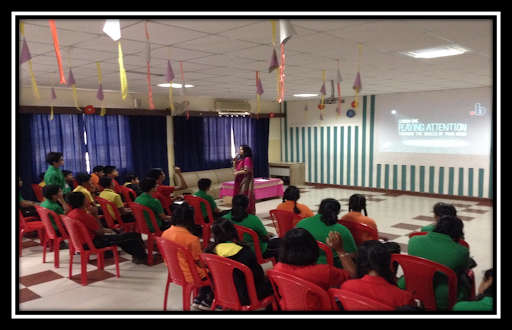What Is Mindfulness?
In simple terms, Mindfulness can be understood as a way of being aware of our thoughts, feelings, bodily sensations, and the surrounding environment in a kind and non-judgemental way. Practicing mindfulness makes us skillful and mature to respond to any situation that we would come across in life. We get tuned into what we are experiencing in the present moment rather than rehashing the past or imagining the future.
How Mindfulness Is Helping Students To Overcome Stress?
- Reduces anxiety and stress – Mindfulness helps students learn how to relax when they are stressed or anxious about an upcoming test or assignment. They learn how to be aware of their body and mind so they can manage their emotions better during extremely tense situations.
You can also read our article 10 ways to overcome exam fear and achieve success article
- Improves concentration and memory – The practice of mindfulness helps students stay focused on the task at hand without getting distracted by other thoughts or ideas that pop into their heads during their day. They also learn how to stop ruminating on past mistakes or bad memories, which can cause them to lose focus on what they are doing right now.
- Keeps them emotionally aware – Mindfulness helps students become more aware of their feelings, thoughts, and intentions so they can make better decisions by being more mindful of what they are thinking or feeling at any given moment throughout the day, week or month. It also lowers the risk of depressive symptoms by decreasing levels of cortisol – a stress hormone, thereby improving sleep quality and overall well-being.
How Can Students Practice Mindfulness In Their Daily Life?
The initial practice would be challenging for students. But, by regularizing the practice of meditation and getting indulged in a mindful lifestyle, students can witness a notable difference in them.
How Is Akshara International School Helping Students Through Mindfulness Program?
The chairperson of Akshara International School, Mrs. Jyoti Rathore introduced a program called Anapana (mindfulness of breath) for Akshara students and staff a few years back to maintain a daily practice of mindfulness. The encouraging feedback from the primary class students in Akshara boosted the confidence of the team to regularize the activity of mindfulness. The approach was changed for the secondary students, as the topic was required to be explained to them. The chairperson Mrs. Jyoti Rathore says, “ I found a solution while pursuing a post-graduate diploma in Buddhist Psychology and Psychotherapy. There I came across the western adaptation of meditation coined as Mindfulness and decided to use this practice to help teens. Anapana, as well as Mindfulness in Schools Project (MiSP) .b curriculum, are essential educational tools and exciting practices. These practices have proved to be a potent and enduring instrument for optimizing one’s academic, creative and physical potential, enriching social and emotional interaction. Mindfulness helps in increasing understanding, compassion and self-awareness and diminishing stress, anxiety, and hostility.”
She believes introducing Mindfulness in school is like giving children a lifelong toolkit that would help these young people not only to manage difficulties but also to flourish.
Mindfulness is a practice that takes time, effort and a commitment to yourself. You cannot do it for one day and expect it to change your life. It takes consistency, dedication and patience to see the results that you want in your life.













